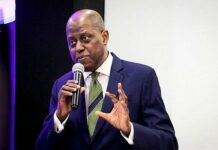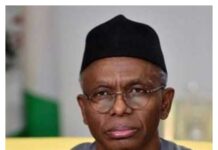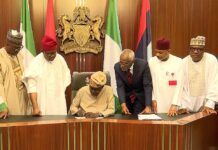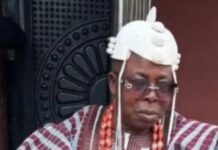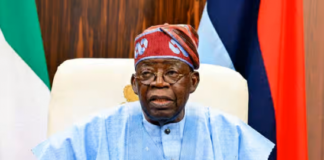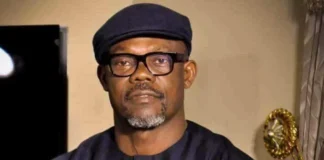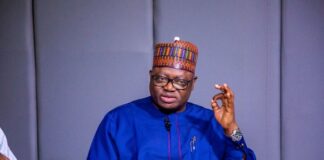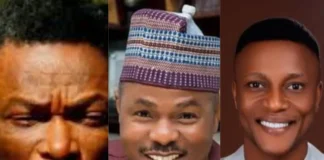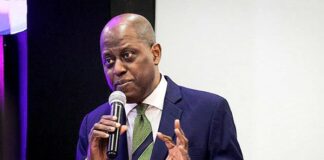Rivers: APC at war with self

The All Progressives Congress (APC) in Rivers State is in the middle of a crisis, which if unresolved, could undermine its ultimate quest to wrest power from the ruling Peoples Democratic Party in 2019.
Penultimate Saturday’s APC Local Government congress has further exposed and deepened the fissure between Minister of transportation, Chibuike Amaechi and Senator Magnus Abe’s loyalists, battling for the party’s soul over who determines the governorship standard-bearer in the next general election.
Though the party’s leadership in the state has tried unconvincingly to downplay the stark division or better still, unprecedented level of disunity and chaos within the party, the fallout of the congresses has brought to the fore the reality that APC is at battle with itself.
On July 28, an APC stakeholders’ meeting that was supposed to deliberate on the statewide LGA Congresses held at ESI, 120 Woji Road, Port Harcourt under oversight of the state chairman, Davis Ikanya and some of the party’s national officers.
The meeting, which was initially slated to commence by 12 mid-day, could not start till past 2pm, when Ikanya and the national officers arrived.
A source at the meeting told The Guardian that people became apprehensive, when the chairman failed to explain modalities for conduct of the congress. Instead, he had directed the national officers to address stakeholders, as though they were there to speak about something he was unaware of.
She said: “What I know from experience as a party member is that either the chairman or the secretary, as the case may be, usually opens the day’s business by declaring the purpose of the meeting. For example, there should have been an explanation as to how the congress would be organised; that two officers would be sent to each LGA; that they would handle the result sheets, as well as conduct the congress proper. Also, that the officers would leave party secretariat by so-so time, and that members should be at their LGAs by so and so a time. But he did not do all these, which raised a lot of suspicion.”
Inquisitive members of the party, particularly those loyal to Senator Magnus Abe, started to ask the leadership to explain modalities of the congress, but to no avail. And in the process of demanding for clarification, the place became tensed, causing the meeting to end in a fiasco abruptly.
In line with political parties’ conventions, the party’s principal officers were supposed to be at the secretariat on the morning of the congress to oversee distribution of electoral materials. Further more, since the two national officers, who came to oversee the exercise couldn’t go round the 23 Local Government areas, the party ought to have appointed people of proven character 48 or 72 hours to the congress as the ad hoc electoral officers cum returning officers and give them the responsibility of going to the 23 LGAs to conduct the congresses. The names of those appointed ought to have also been displayed, but this never happened according to a party source.
“Those appointed as ad hoc officers ought to have been at the party secretariat on Saturday, where they would then be mobilised to go to the LGAs. There was no sign of such activity at the party secretariat that morning. The chairman, secretary and Organising secretary were not there that morning, which further heightened the suspicion. So, people were wondering: ‘If you say the congress would be conducted at the LGAs, where were the officers taking materials down to the councils?’” she said.
After waiting at the secretariat for several hours without seeing any party official, thousands of Abe’s supporters, who had gathered at the venue to observe distribution of electoral materials that morning, decided to storm Novotel Hotel, along Stadium Road, Port Harcourt, where the national officers were lodged.
The irate supporters, who barricaded the hotel entrance, demanded that the national officers explain to them modalities for conduct of the congresses. They insisted they wanted the congress to hold, as they were opposed to imposition of delegates. At that point, the officers started dragging their feet and amid the altercation that ensued, the police had to intervene to avert a breakdown of law and order.
At this stage, the aggrieved parties now moved to the office of Commissioner of Police, who brokered a truce among the warring parties. He advised that all grievances should be resolved through the party internal mechanism.
Senator Abe, representing Rivers South East Senatorial District, had commended APC members in the state for resisting attempt by party leadership to shut out those on his side at the congresses.
He said it was obvious that the leadership designed the congress to shut out his supporters. He commended those who came out and defied not only nature, but also the instruments of oppression to make a point that the party can no longer be a home of impunity.
He said: “The party has already issued a list of delegates for the national convention and has completely eliminated all perceived Abe’s supporters. Obviously, a section of the party’s leadership is determined to go it all alone without Abe and his supporters.”
APC chairman, Davis Ikanya, has blamed external forces for the discrediting of the congresses. He said the party felt displeased that, irrespective of announcement that the congresses will hold in the Local Government Areas, but surprisingly, most of the party chieftains mobilised their supporters and associates to Port Harcourt for reasons the party leadership is still trying to fathom.
But Ikanya’s stance not withstanding, Abe’s faction is most unlikely going to accept the list of delegates announced by the party chairman. With the emerging battle within the APC, which has left it in disarray, it is unclear how the party can, or ever will reunite before the 2019 elections.
A core Abe supporter, who pleaded anonymity, told The Guardian that all those being paraded, as party delegates never went through any form of congress. He insisted that Abe’s supporters would continue to advocate properly conducted congresses..
“You can see that that list is a prepared one. You can see that even before the congress, they had agreed that this is what they would do, which is not good for the party’s image. In a congress, even if it is by affirmation, you have to go there to mention a candidate’s name and others. Then a vote has to be taken there, assuming that person has unanimous support. A vote still has to be taken that so and so number of persons, who presented themselves for the congress, and out of this number, so and so number stood behind the person, which is then recorded, in case of a contest. In this instance, even if it is non-elective, you are supposed to organise it in a manner that meets national standard,” he said.
Currently, the APC could best be described as a party at war with itself. Many of its members have become increasingly disaffected, with the lack of internal democracy, which almost tore the party apart in 2014. Similar scenario is again playing out today. The likelihood of presenting a united front ahead of 2019 general elections will depend on who has the decisive say in the choice of governorship candidate.
Since 1999, Rivers politics has become highly personalised. The APC, as presently constituted in Rivers State, revolves around Amaechi, who remains vehemently opposed to Abe’s ambition to be the party’s standard-bearer in 2019.
It is apparent that the political manoeuvre that characterised the congresses was geared at excluding Abe’s core loyalties, as depicted by the list of delegates released by the party this week. A pro-Amaechi member said the congress is seen as a highly effective strategy to draw the final curtains on Abe’s governorship aspiration and to possibly force his exit from the party.
And though it might seem hasty to make detailed assessment of the impact of recent developments on the fortunes of APC, as it goes through a fierce period of chaotic competition for power, one thing remains clear, however, which is that the congress clearly signalled that the party is on the verge of a significant divide.
A noteworthy observation is that the APC has been far from being a unified political force after the selection of Dakuku Peterside instead of Abe, as the party’s governorship candidate in 2014. That polarisation, which has continued to plague the party, will definitely have political consequences.
In contemporary Rivers State politics, division in a political party has often led to wholesale realignment of politicians. So, ahead of the 2019 general elections, if the APC fails to recast its political arithmetic, sources within PDP have told The Guardian that the PDP will make political overture to aggrieved APC members in a bid to whittle down recent gains recorded by the party in Rivers State East senatorial district.
Already, the PDP has intensified its campaign of calumny against Amaechi, whom they feel the longer he stays in his current post as minister, the more he will strive to destroy their chances of retaining power beyond 2019.
But Abe, who seems determined to push his ambition through, irrespective of the stormy circumstance Amaechi’s faction created, has vowed never to leave the party.
“No amount of intimidation will make me leave the party. I was with the PDP, and we left because in that party, when something is going wrong and you shout from now till tomorrow, nothing will be done about it. But that is not the case in APC, as I am one of those that struggled and fought to establish it in Rivers State.
“I was the Secretary to the panel that conducted the primaries in Kogi State. I know what we did. I saw what happened in Edo. So, APC is not PDP. If I leave this kind of party for another, where I know if they are doing something wrong and I shout endlessly, nobody will respond. What am I going to do in such a party,” he queried.
There is no doubt that this is, indeed, an extraordinary moment in the political history of both Amaechi and Abe, who are the major gladiators battling for control of APC’s soul. Their failure to resolve the internal wrangling and acrimony amicably might severely erode the party’s goodwill in areas where it recently made inroad during the December 2016 rerun legislative polls. Culled from The Guardian Nigeria



